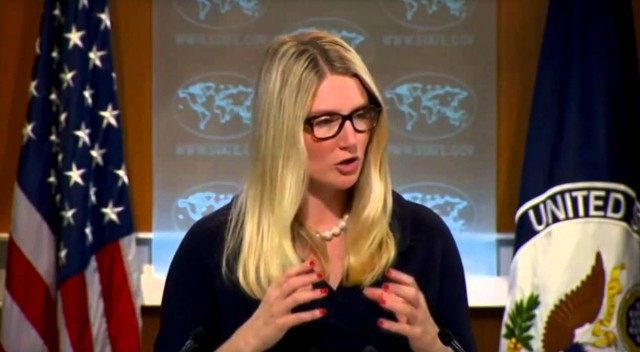Former Obama State Department appointee Marie Harf said on Tuesday that the former president’s decision not to order a military strike against Syria after dictator Bashar al-Assad crossed his stated “red line” by using chemical weapons against his own people hurt the United States’ diplomatic efforts going forward.
“Now did not enforcing the red line hurt us diplomatically?” Harf said at a discussion at the Hudson Institute in Washington, D.C. “Absolutely.”
Harf, who was a spokesperson for Secretary of State John Kerry, said that decision also hurt Barack Obama politically.
“Did it give some people the notion that they used politically that we were unwilling to use military action … absolutely,” Harf said, noting that Obama’s decision also was affected by the lack of support for such strikes by his fellow Democrats.
Michael Pregent, adjunct fellow at Hudson, said that the strike on Assad’s military assets ordered by President Donald Trump after the April 4 chemical attack that killed scores of innocent people, including children, was Trump’s most significant foreign policy win since taking office.
Assad denied — as he has repeatedly done over the course of the more than six-year civil war — that he was responsible for the attack.
But the U.S. has claimed it is certain Assad did carry out the attack.
“Last week, Bashar al-Assad’s regime killed even more of its own people using chemical weapons,” Tillerson said in the days following the attack. “Our missile strike in response to his repeated use of banned weapons was necessary as a matter of U.S. national security interest.”
“We do not want the regime’s uncontrolled stockpile of chemical weapons to fall into the hands of ISIS or other terrorist groups who could, and want to, attack the United States or our allies,” Tillerson said.
The latest development in Syria is a plan brokered by Russia, Turkey, and Iran that would establish four “safe zones” in Syria designed to protect innocent Syrians. But participants in the Hudson discussion said it is unclear whether those safe zones would not ultimately help the Assad regime.

COMMENTS
Please let us know if you're having issues with commenting.